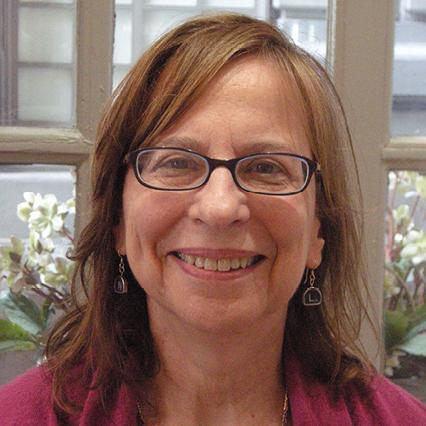
We recently caught up with Nancy Ludmerer, an award-winning writer and author of over 75 published stories and other works. She began her career as a litigation associate in Davis Polk’s New York office, was elevated to counsel, and practiced law at the firm for over 30 years. She left the firm in 2016 and worked as Counsel to the New York State Chief Judge until retiring from the law in 2018.
Read on to learn more about Nancy’s new book, how her time at Davis Polk has influenced her writing and her advice on pursuing an interest in the arts within a legal career.
Your debut fiction collection, Collateral Damage: 48 Stories, was published this past October and awarded the publisher’s annual fiction prize for 2022. Tell us about the collection.
The title of the collection makes it sound like a tome, but most of the 48 stories in this slim 138-page book are flash fiction – stories of no more than 1,000 words (around four pages). Many are an even shorter subset of flash called micro fiction, at 400 words or fewer. Two stories are a single sentence; several are less than 100 words. All were previously published in magazines and literary journals, some as early as 1996; many were prizewinners in the publications that originally published them. Two were selected for and reprinted in the Best Small Fictions anthologies of 2016 and 2022.
Do you have any pieces currently in the works that you can share with us?
Yes, there are several that I am either working on or have begun to submit.
How have your legal training and career influenced your fiction?
In litigation, your first job is to learn everything you can about the facts and the law. After that, you distill a case to its essence, telling a story so that the conclusion you want for your client will appear inevitable – to a judge or a jury, an arbitrator, your adversary. Similarly, flash fiction requires compression: telling a complex story in a page or two, knowing what to leave out, and crafting the ending that’s right for the story. It differs from litigation in that the ending you seek in any short fiction should, at its best, be both inevitable and surprising – not the effect you necessarily want in your advocacy.
Was mentoring important to your career at Davis Polk, either being mentored by senior lawyers or acting as a mentor to others?
When I arrived at Davis Polk in the summer of 1982, there was no formal mentoring program. A stand-in, perhaps, was the camaraderie among women lawyers, the sharing of experience, questions, and concerns. In particular, Miriam Cedarbaum and Ahuva Genack shared their advice and experience. Meanwhile, the training I received from more senior lawyers on my cases – Guy Struve, Jimmy Benkard, Scott Wise and Dennis Glazer, to name a few – was excellent.
What advice would you give to lawyers who would like to balance a passion for the arts with a legal career?
My model for lawyers pursuing their artistic passions is a former Davis Polk corporate lawyer, Stephen Cho, now an Executive Director at Morgan Stanley. Stephen is a wonderful cellist. In 2006, while an associate at Davis Polk, he founded Camerata Notturna, an astonishingly good chamber orchestra. There are some professional musicians who perform with Camerata Notturna, but many are doctors, lawyers, investment bankers, company executives, or just plain folk. Many attended top music schools (Stephen went to Juilliard) but ended up pursuing other careers. Camerata Notturna musicians play with a joy and verve often lacking in performances by renowned orchestras. Pursuing artistic endeavors can make you a better and happier lawyer, a more interesting colleague, and a more resilient and sensitive human being. It can also lead to an immensely satisfying second career.